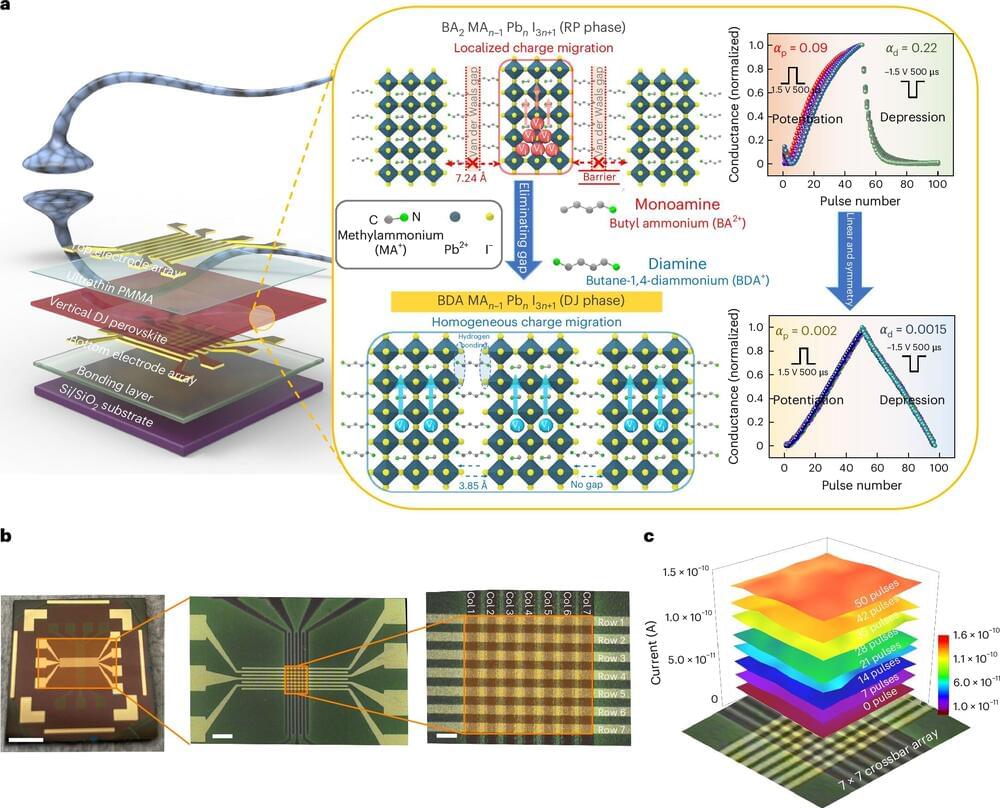A team including researchers from Seoul National University College of Engineering has developed neuromorphic hardware capable of performing artificial intelligence (AI) computations with ultra-low power consumption. The research, published in the journal Nature Nanotechnology, addresses fundamental issues in existing intelligent semiconductor materials and devices while demonstrating potential for array-level technology.
Currently, vast amounts of power are consumed in parallel computing for processing big data in various fields such as the Internet of Things (IoT), user data analytics, generative AI, large language models (LLM), and autonomous driving. However, the conventional silicon-based CMOS semiconductor computing used for parallel computation faces problems such as high energy consumption, slower memory and processor speeds, and the physical limitations of high-density processes. This results in energy and carbon emission issues, despite AI’s positive contributions to daily life.
To address these challenges, it’s necessary to overcome the limitations of digital-based Von Neumann architecture computing. As such, the development of next-generation intelligent semiconductor-based neuromorphic hardware that mimics the working principles of the human brain has emerged as a critical task.
